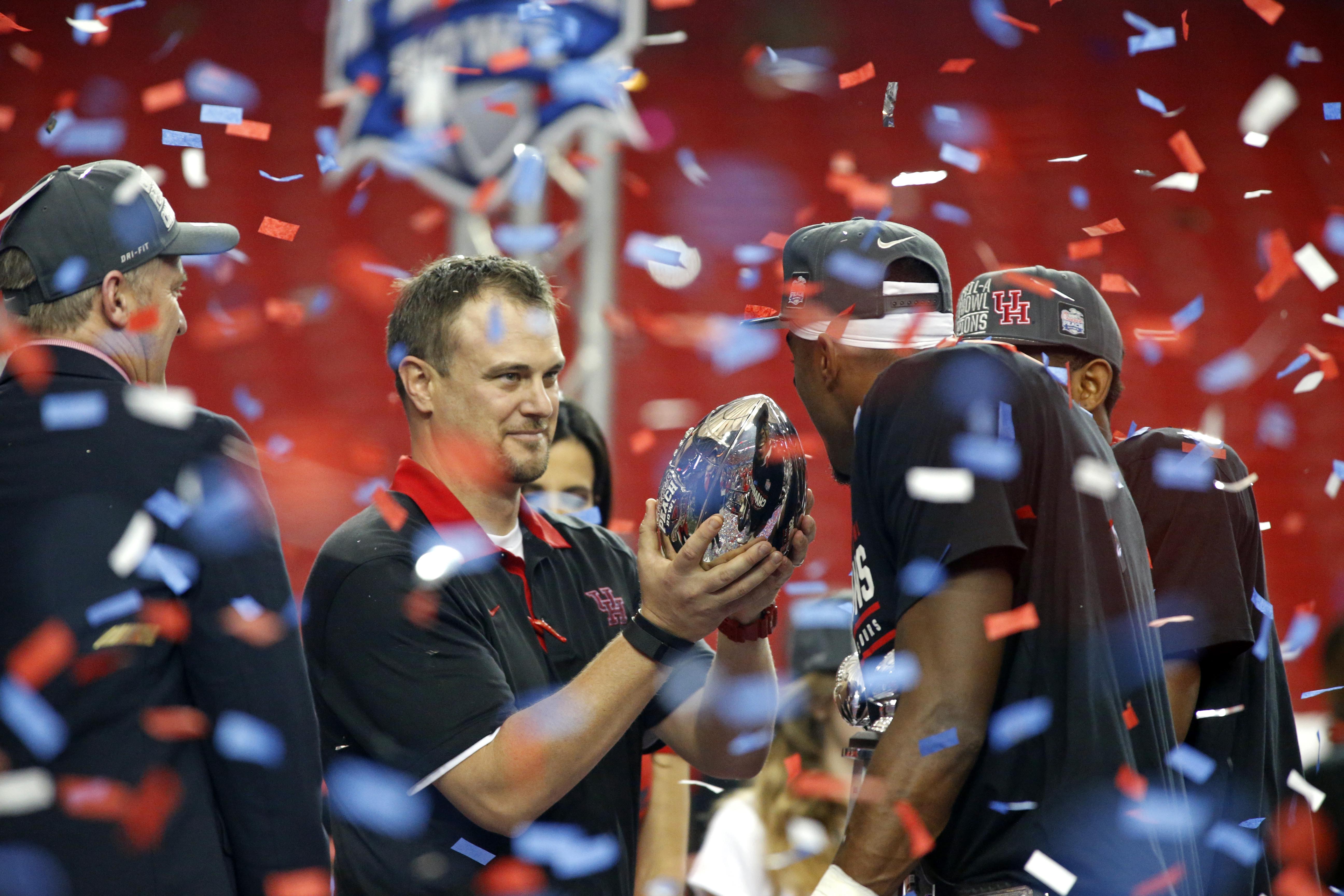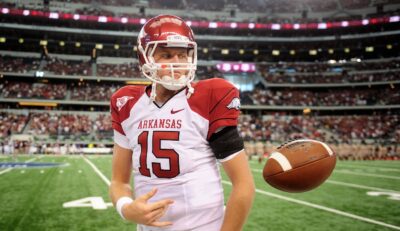
Houston coach Tom Herman is right: Transfers shouldn’t have to sit out after coaching change
Tom Herman worked wonders in just one season at Houston. He brought championship football as a head coach to the city and the program inside the American Athletic Conference, just one year after helping Ohio State win a national title as its offensive coordinator.
And now, in the middle of the offseason, he jumped on the Paul Finebaum Show and gave his winner of an outlook on players who want badly to transfer but are tied down by old rules that need serious updating.
RELATED: Coaches like Kirby Smart should not be involved in transfer process
Herman’s opinion was strong and straight-forward. He said players should not only be allowed to transfer to other schools without being restricted, but they also should not be required to sit out a year in the event of a coaching change.
His take is bold. It could be considered radical in going against the long-standing rule by the NCAA that a football player needs to sit out one season before resuming his college career.
But you know what? Herman is also absolutely right.
He stated:
“If the student-athlete is just plain and simple unhappy and wants to go somewhere else then I think a one-year cooling-off period to make sure you understand what you’re doing and what you’re doing is going to cost you a year of eligibility is fair, but if a coaching change does happen and the people in that young man’s life do change, I think he should have every right to go wherever he wants.”
Yes, Herman’s take is influenced by years at Sam Houston State and Texas State, in the world of the Football Championship Subdivision, where sitting out a season is not required for transfers.
But then why are players saddled with sitting out a season when transferring in the Football Bowl Subdivision, where they arguably have more to gain — and lose — since the level of play is better and the prospects to play pro ball are much higher?
The NCAA has reason to be questioned on many levels, and this outdated rule of making players wait one season is nonsense when a messy coaching change is thrown into the mix.
Herman is absolutely right. In fact, it could be taken a step further, although Herman won’t do that, in saying that the “cooling off” period of one year on the sidelines shouldn’t even be required when a coaching change isn’t involved. In the big-time arena of college football, where time is indeed money in many cases, holding players back for one season is crucial in their development as potential NFL draft picks.
Eventually, lifting that rule would be the logical and fair thing to do. But when a coaching change is involved, something a player has no control over, it is absolutely unfair to make him put his college career on hold in order to transfer.
The least the NCAA could do, as Herman suggested, is tweak the rule and give the player the right to make a detour without sitting out a silly season because the man he chose to play for coming out of high school had a change of heart, wanted to retire suddenly or saw greener pastures somewhere else.
If the coach is allowed to go elsewhere, on a whim, and continue his career right away, why can’t the player?
There already are other arguments about college football players being held back, that they should be paid for their on-field services since they are the cash cow for many universities, in the SEC and across the nation. That age-old argument is up for debate.
But it shouldn’t take a guy with an FCS pedigree like Herman to come forward with this opinion about transferring. Many players make their choices based on the coaching staff they want to play the next four years for, not the schools.
Surely the NCAA could, as Herman suggests, update an unfair rule. Even if it did keep intact the rule that a player sit out a season if a coaching change wasn’t involved, which also can be argued is unfair and outdated, allowing a player to follow his dream without delay is the right thing to do when his coach leaves.
The problem is, the NCAA hasn’t always done well in the world of feelings, or taking care of the very people who have helped grow college football to seemingly pro sports status.
So while Herman’s opinion is great and fresh and just to most, it will likely twist in the wind as something that sounds great but will never be acted upon.
Still, it’s comforting that someone in Herman’s position would be so inclined to come out with an opinion that you would think many coaches have often thought about but never had the guts to say.
A change to this rule is too logical and makes too much sense though.
New Georgia coach Kirby Smart refusing to allow players to transfer to Miami to rejoin Mark Richt is one form of absurd restriction. But even if Smart did the smart thing and let his new players transfer wherever they wanted, whether it was Miami or Hawaii, they would have to sit out the one long, unnecessary season.
Maybe one day, that won’t be the case. Herman would surely love it. And, more important and just, the players who have had to endure this petty waiting period would be forced to wait no longer.
So what is the NCAA waiting for?
Cory Nightingale, a sports copy editor at the Miami Herald, lives for Saturdays. He especially enjoys the pageantry, tradition and history of SEC football.







